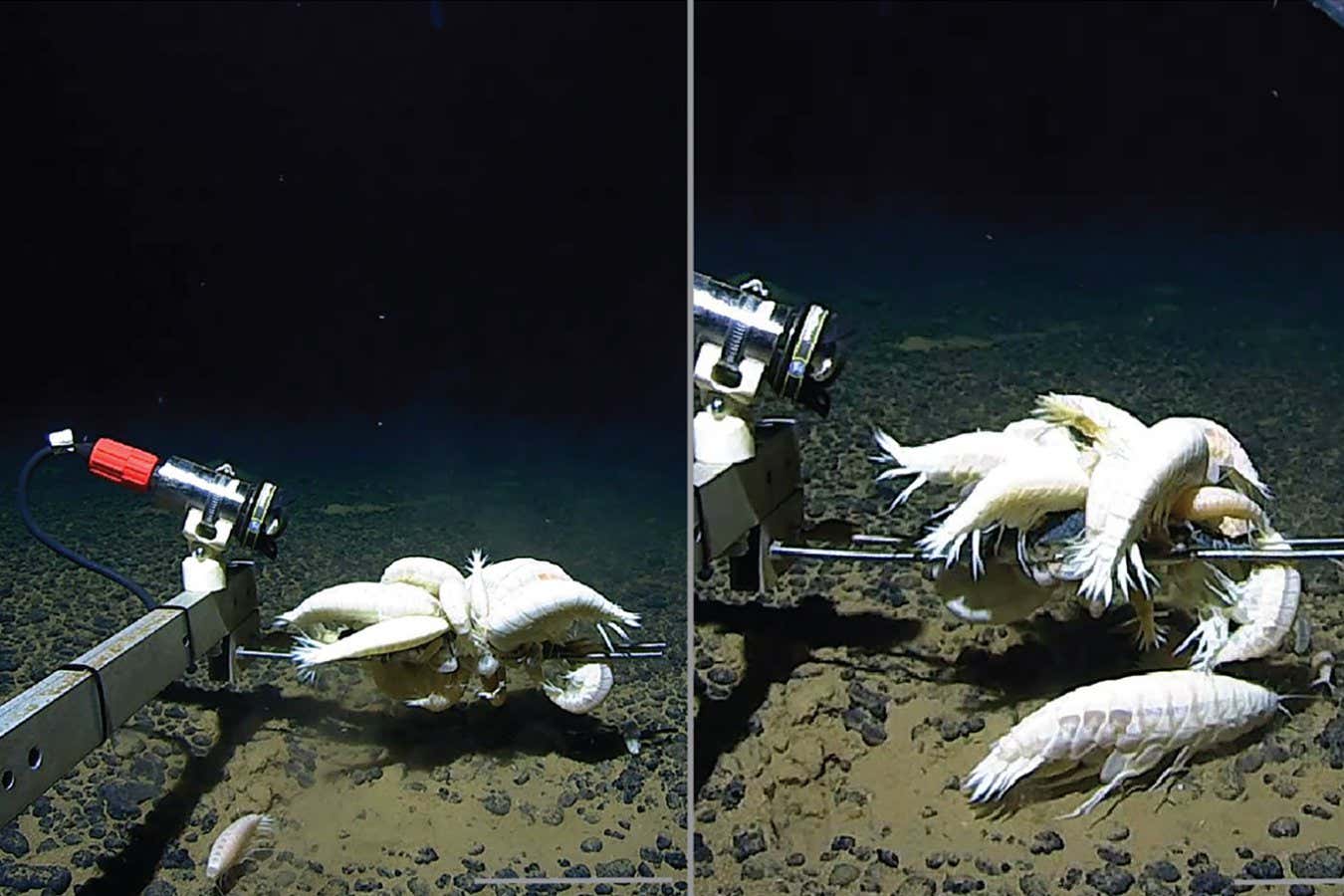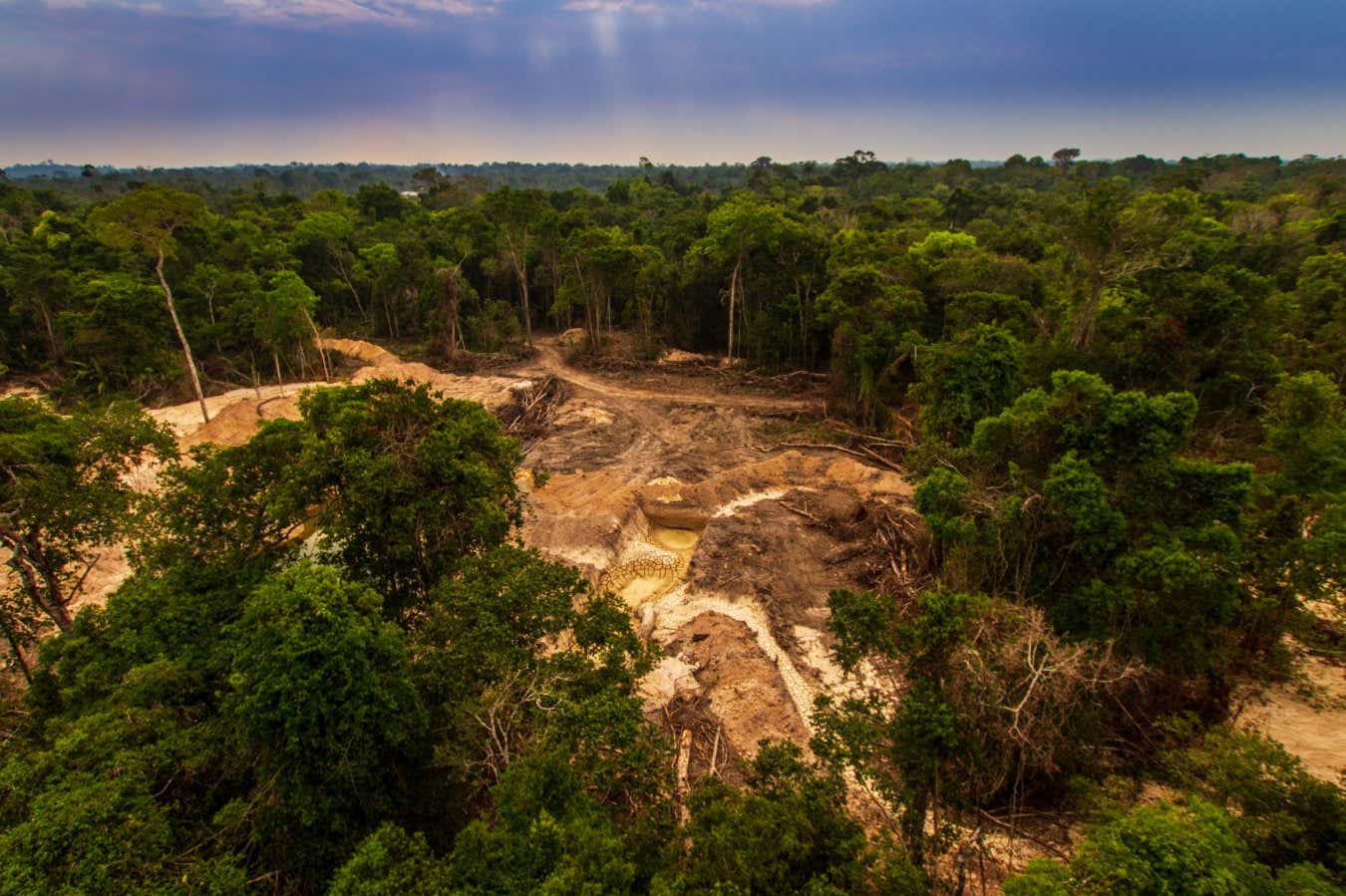Now Reading: Supergiant Crustaceans May Thrive Across Half of Deep-Sea Floor
-
01
Supergiant Crustaceans May Thrive Across Half of Deep-Sea Floor
Supergiant Crustaceans May Thrive Across Half of Deep-Sea Floor

Rapid Summary
- The crustacean Alicella gigantea, the world’s largest amphipod, may be far more widespread across the deep-sea floor than previously believed.
- Found at depths between 3890 to 8931 metres, researchers estimate its potential habitat could cover around 59% of the ocean floor based on available depth data.
- Historically considered rare due to challenges in exploring deep-sea environments, updated evidence suggests increased connectivity of populations worldwide.
- Researchers gathered 75 records spanning collections from 1899 onwards across the Pacific, Atlantic, and Indian oceans.
- DNA analysis revealed all specimens belong to a single genetically similar species despite their geographically diverse locations.
Image Credit: Maroni et al./Royal Society Open Science
!campaign=RSS%7CNSNS&utmsource=NSNS&utmmedium=RSS&utm_content=home”>Read More
Indian Opinion Analysis
The findings present a compelling case for revising our understanding of biodiversity in Earth’s least explored ecosystems. If accurate, this research underscores the vastness and interconnected nature of even seemingly isolated habitats like those found thousands of meters beneath the ocean surface. For india specifically-with its extensive coastline bordering much of the Indian Ocean-these insights carry scientific significance in advocating deeper marine exploration within its territorial waters.
Such discoveries hold implications beyond taxonomy; they point towards opportunities for studying resilience and adaptation mechanisms in extreme environments.While logistical difficulties remain a barrier globally, India’s increasing focus on blue economy initiatives can benefit from collaboration with global research efforts towards deep-sea exploration. though, caution is necessary as any future interventions must account for protecting fragile ecosystems while expanding human knowledge responsibly.

























